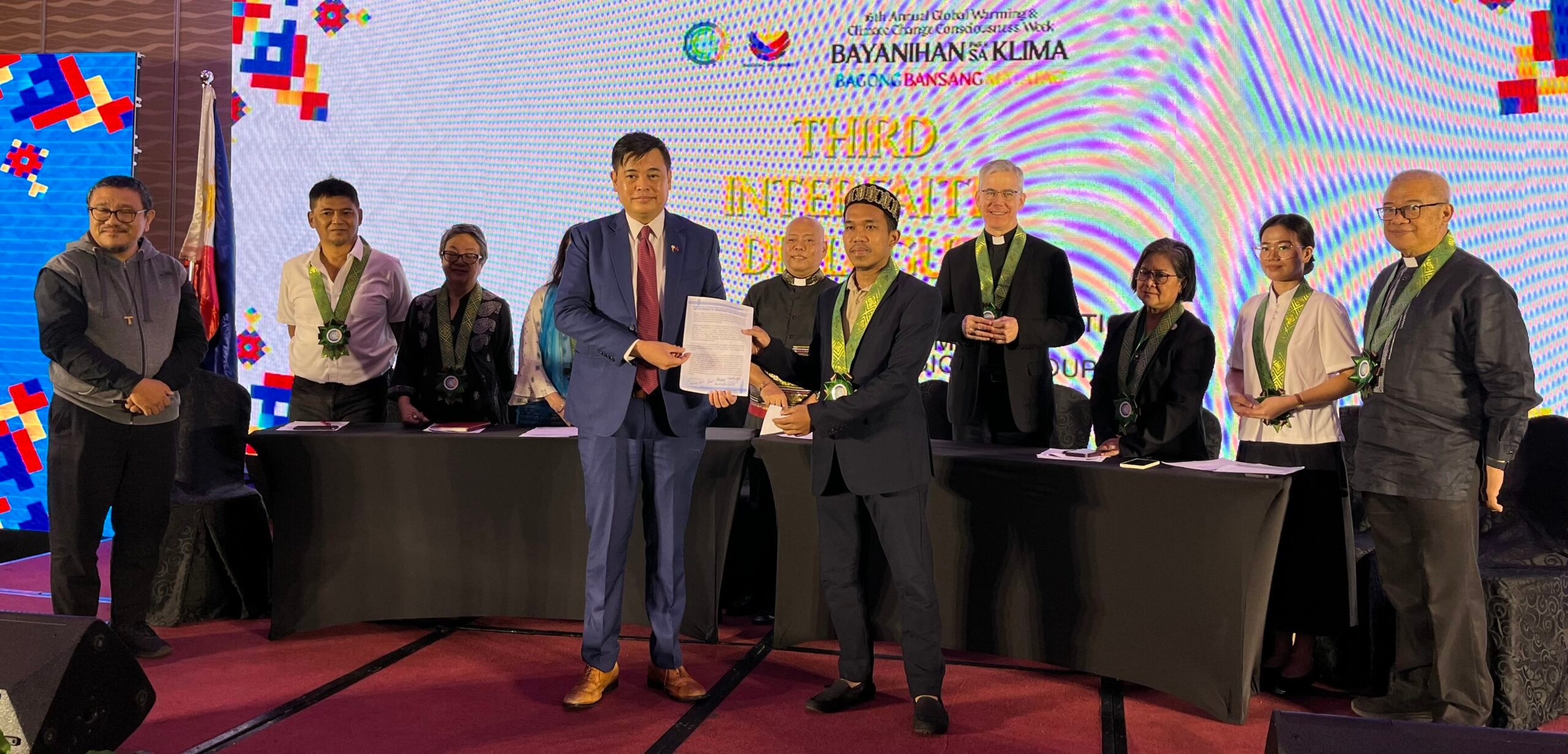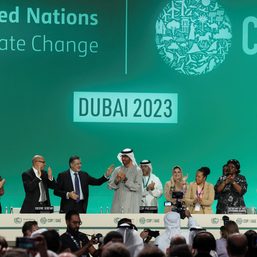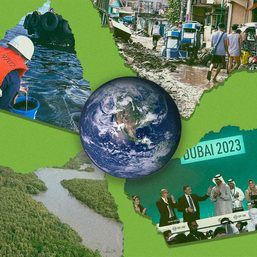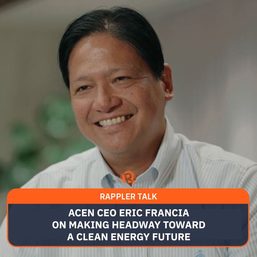SUMMARY
This is AI generated summarization, which may have errors. For context, always refer to the full article.

MANILA, Philippines – Faith leaders from various traditions gathered ahead of a major climate summit in Dubai to highlight faith’s “tremendous” and “untapped” potential in accelerating climate action.
“People of faith have a most important, crucial role in combating the environmental crisis that we’re facing, and together we can do this,” said Archbishop Charles Brown, papal nuncio to the Philippines, at an interfaith dialogue held on Thursday, November 23.
The event was organized by the Climate Change Commission (CCC) and the faith-based organization Living Laudato Si’ (LLS) as part of Philippine Climate Change Week. It took place a week before the 2023 United Nations Climate Change Conference (COP28) happening from November 30 to December 12, 2023, in Dubai, United Arab Emirates.
During Thursday’s event, eight representatives from Christianity, Islam, Hinduism, Buddhism, and indigenous peoples’ (IP) groups signed a manifesto urging for “paradigm-shifting decisions” that would “scale up” action and truly address the impact of climate change at COP28.
The call mainly urged developed nations to adequately fund and support developing nations and vulnerable communities as they adapt to and mitigate the effects of a changing climate.
They also urged the Philippine COP28 delegation to “properly represent” the country by “demanding the finance, support, and justice owed by big polluters.”
Funding to compensate for the “loss and damage” brought by the effects of climate change to vulnerable countries is among the most contentious issues that nations will tackle at COP28.
The manifesto also reiterated faith and religious leaders’ commitments to educate and practice the sustainable use of resources within their communities in response to the climate crisis.
Secretary Robert Borje, vice chair and commissioner of the CCC, received the document from the faith leaders. Archbishop Brown and Rodne Galicha, executive director of LLS, served as witnesses.
Borje underscored how faith can give “direction, values, and motivation to make us do so much more” to address the climate crisis. He also recognized that faith-based organizations are among the first to respond to the impacts of climate change.
Religious commitments
The event was also an opportunity for different faiths to share their commitments and perspectives on climate and the environment.
Brown pointed out the Catholic Church’s unique position to have a “definitive and defining influence on the problem of climate change” as an institution with nearly 1.4 billion adherents worldwide.
Pope Francis, leader of the Catholic Church, has emerged as one of the most prominent voices for climate and the environment. He is set to participate at the UN’s annual climate conference, the first pope to do so.
San Carlos Bishop Gerardo Alminaza, vice chair of the Catholic Bishops’ Conference of the Philippines’ social action, justice, and peace commission, reiterated pronouncements of the Catholic bishops on the environment, including commitments to divest from coal and other extractive industries.
Father Dionito Cabillas of the Iglesia Filipina Independiente (IFI), commonly known as the Aglipayan Church, issued a similar call seeking the end to destructive activities such as widespread deforestation, open-pit mining, and reclamation.
“The IFI believes that the Philippine economy will not improve if the decades-long plunder of our natural wealth in our country and the destruction this has caused our environment and communities will not be reversed,” Cabillas said.
Diverse perspectives, shared imperative
Shakuntala Vaswani, cofounder of Peacemakers’ Circle Foundation, shared that in Hinduism, “nature is not viewed merely as a resource but as a sacred and divine entity.” Thus, the “reverence for nature provides a spiritual foundation for environmental stewardship.”
Hindu ethics, which lies on the principle of ahimsa or nonviolence, can serve as a guide “to live in harmony with all living beings including the environment,” Vaswani said.
Mahadil Dammang, representative of the National Commission on Muslim Filipinos, expressed that there are about 200 verses in the Qur’an which concern the environment.
“The reality is that nothing could be more Islamic than protecting God’s most precious creations, which is the Earth,” said Dammang. “Rising temperatures, melting ice caps, and extreme weather events are not just scientific phenomena but challenges that test our commitment to the principles of justice and responsibility embedded in our faith,” he said.
Representatives from indigenous peoples also urged greater recognition and protection for their contributions to addressing climate change.
Victoria Tauli-Corpuz, executive director of IP organization Tebtebba and a Kankanaey Igorot, said that IPs worldwide number at around 400 million or 5% of the population, who live in 20% of the world’s territory. However, 80% of the world’s biodiversity, where much of the sequestration of carbon emissions happens, is found within IP territories.
This means that much of the sequestration of carbon emissions happens within IP territories “in spite of the gross human rights violations that we are faced with,” Corpuz said.
Corpuz reiterated that “in spite of the gross human rights violations that we are faced with,” indigenous peoples “will continue our commitment to make this world more sustainable and the ecosystems.”
Lineth Brondial of the Tzu Chi Foundation, an international Buddhist humanitarian organization, mentioned that about 84% of the world identify with a religion.
“If we look at it, this is our power: Our impact is huge and if we use our influence on championing sustainable solutions for the humanity and our planet, it will make a huge difference,” Brondial said. – Rappler.com
Add a comment
How does this make you feel?






![[OPINION] Hoping amidst ‘this thing’: COP28 reflections from a 24-year-old first-timer](https://www.rappler.com/tachyon/2024/01/imho-c0-28-reflection.jpg?resize=257%2C257&crop=297px%2C0px%2C720px%2C720px)

![[OPINION] Is limiting warming to 1.5°C still alive after COP28?](https://www.rappler.com/tachyon/2023/12/imho-cop28.png?resize=257%2C257&crop=285px%2C0px%2C720px%2C720px)





There are no comments yet. Add your comment to start the conversation.